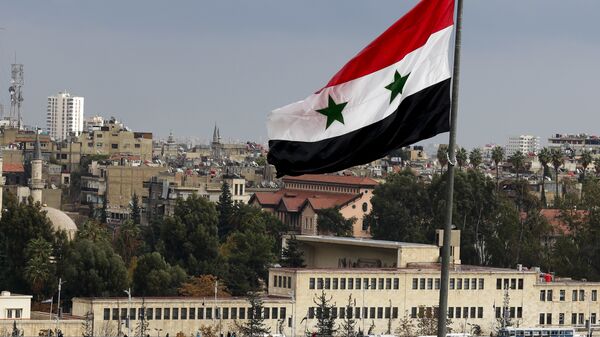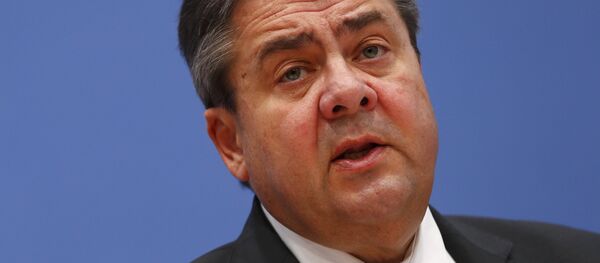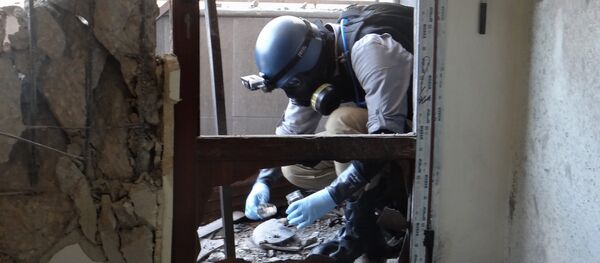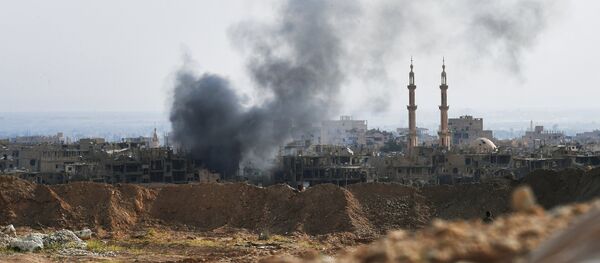The restrictions targeted eight high-ranking military officials and eight scientists "involved in chemical weapons proliferation and delivery." The names of the 16 sanctioned Syrians will be published in the Official Journal on Tuesday, July 18.
The United States supported the new sanctions, saying that Washington "applauds" the decision.
According to the EU Council, a total of 255 Syrians are now targeted under Brussels’ travel ban and asset freeze, in addition to 67 entities.
With the new sanctions, the EU is attempting to create an obstacle for the settlement of the Syrian crisis, according to Mikhail Roshchin, a senior research fellow at the Institute of Oriental Studies, at the Russian Academy of Sciences.
"I guess they [Western policymakers] once again rely on allegations that have never been confirmed. As for these sanctions, it seems that the EU Council is rushing on its attempts to complicate the settlement which has recently been taking shape," Roshchin said in an interview with Radio Sputnik.
Last week, French President Emmanuel Macron and US President Donald Trump held a meeting in Paris, during which they discussed the situation in Syria. Following the talks, Macron said that Paris now has "a new approach of Syria" and no longer demands the removal of Syrian President Bashar al-Assad.
In turn, Trump said that the ceasefire for southwestern Syria agreed on during his G-20 meeting with Russian counterpart Vladimir Putin was holding. Moreover, the US leader announced that his administration is working on preparations for a second ceasefire.
"So, this is at attempt to hamstring the Syrian settlement. The West once placed a serious bet on the Syrian opposition, but now they [Western governments] see that the opposition is losing. Of course, they don’t want to admit that their game is over," Roshchin said.
Commenting further on the new sanctions, the expert suggested that the restrictions are unlikely to produce a significant effect.
"They are rather a symbolic gesture because Syria is already at war and its population is currently in a very difficult situation. This is why such formal decisions made thousands kilometers away somewhere in Europe cannot be very important," the expert pointed out.
Reacting to the incident, Washington, which has not presented any proof of chemical weapons use by Damascus, launched 59 Tomahawk cruise missiles at the Syrian governmental military airfield in Ash Sha’irat on April 6.
Damascus has repeatedly denied any involvement in the incident and said that the Syrian government doesn't possess chemical weapons, as the full destruction of Damascus’s chemical weapons stockpile had been confirmed by the Organization for the Prohibition of Chemical Weapons (OPCW) in January 2016.
In an interview with Sputnik on April 21, President al-Assad characterized the alleged chemical attack in Khan Sheikhoun as a provocation to justify the US strike on Ash Sha’irat. The Syrian leader also warned of the possibility of new provocations similar to the one in Khan Sheikhoun.




